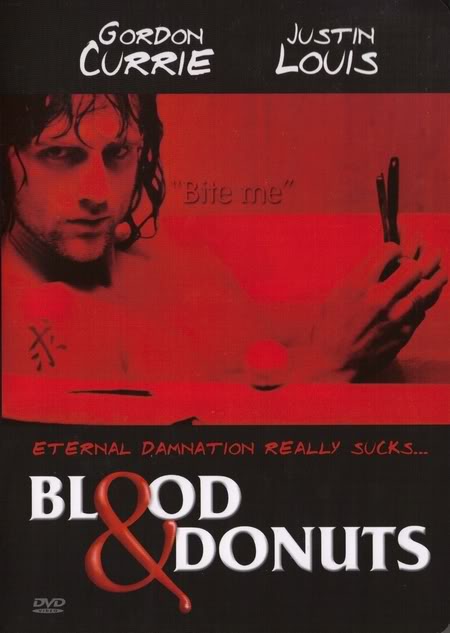Modern Cinema
The death of cinema?
So I’ve been meaning to write this for a few days now. Shame it’s taken me so long…
As reported in the Guardian and many other places on Sunday, several big-name directors have joined the cinema industry in attacking movie-industry plans to shorten the amount of time between the cinema debut of a film and its home availability, by making video-on-demand (that’s streaming) films available as little (?) as two months after the film’s release.
They roll out some interesting claims to fight these plans: VOD releases will increase piracy, they say, and will force cinemas to close. These are BAD THINGS and, if big, important names are saying them they MUST BE TRUE. Right?
Wrong.
One of the marks of almost any cultural industry (ugh, I hate pairing those words) is that those who’ve climbed their way to the top tend to have an (entirely to be expected) fondness for the status quo. Things are how they are and should be as they should be. Why would you change anything?
Sadly for them (but not for us), life doesn’t work like that. We like progress. We like exciting new things. We like big shiny fun things that no-one else in the history of mankind has ever had. Hence we invent stuff, we find new ways to look at the world, we radically alter our relationship with life, culture, art and the environment. I am by no means suggesting that this is always positive - it’s not, the obscene quantity of human-created human suffering is testament to that - but I am suggesting that it’s inevitable: we’re just not adapted to maintaining the status quo. Things will change.
So let’s return to Earth for a moment and go back to look at their claim. It will increase piracy. It will. Will it? The evidence that it would is very shaky. Let’s be blunt: it’s very easy to find films on the internet. I (obviously) am not about to link to anywhere you can get it but the current box office smash Fast and the Furious 5 is all over the internet. I have no idea what kind of quality it is, but it’s there and that’s enough.
Now, what we have here is the Film Industry’s Music-Industry-Moment. For the music industry, this happened somewhere around the whole Napster deal. Faced with a very clever technology (hello internet!) capable of delivering high quality content at (even then) fairly decent speeds, they were poised to make an industry revolution. They bottled it. Years later and the Beatles music has only just been made available online (November last year). No-one was keeping count, but thousands of Beatles albums were certainly downloaded in that time. Today’s online music sites still often provide higher quality music than some shops sell.
The point I’m approaching (slowly) here, is that refusal to engage with digital distribution for fear of increased piracy is futile and narrow-minded. The Film Industry has to take the initiative and provide a decent service that people will pay for before they get used to downloading films. If they wander blindly into the same place as the music industry there is no way back.
The second point, and I think the one I object to more, is that it will mean cinemas to close. This relies on out automatic linking of “closing things = bad” without pausing to think about the relation in question: why will people choose to watch a film at home rather than in a cinema?
Some of the answers are related to progress again - we have bigger better TVs with bigger better speakers, the gap between home and cinema has narrowed - but there’s also an implicit condemnation of the way cinemas are run and have been run for years.
Cinema visits in the UK are horrendously expensive. The price for a single ticket is already bordering on the price for a DVD in some cases. I might like the cinema but I can’t afford to go as much as I’d like. If me and four friends each bought a DVD we’d have spent little more than it’d cost the five of us to go to the cinema and we’d see five times as many films.
It’s also astonishing (and, depressingly true) how regular it is to hear serious film-fans describe the cinematic experience as being deeply disappointing. We brave the ticket prices, stump up and march in. The sticky floors and chewing-gum covered seats are what welcomes us. The bunches of screaming kids chucking sweets at each other and talking continues throughout. You leave thinking, ‘I wish I could’ve seen that in my own house’. Seriously, what would it cost a cinema to have a member of staff to kick out the people who ruin a film for everyone?
So there we have it. Cameron, Bigelow et al are clinging to what they love. The cinemas are using this as another excuse to neatly avoid considering why less people go to the cinema and they’re all intent on digging in their heels to slow the inevitable. And, I should add, by the inevitable, I certainly don’t mean the death of cinema. This is not the end. This is another chapter. I love the cinema and will continue to go but it shouldn’t need to be carefully protected: to survive it must make progress too, it must work to provide an absolutely inimitable experience that we’re prepared to pay for.
The 'B' in B-Movie Doesn't Mean Bad: A Rant.
As you can probably tell from just the briefest glance at this blog, I watch a lot of what would commonly be called ‘bad films’. Before we go any further, it should be made clear that this is a misleading and unfair label for these films. Films today tend to break down into depressingly few categories. They are either Big Budget, Independent, ‘Art-house’ or Foreign. Anything else tends to get labelled as bad. What’s even more disappointing is that, in the vast majority of cases ‘independent’, ‘art-house’ and ‘foreign’ often run together. So we’re left with: Big-Budget-Small-Brain-Blockbusters (the kind you eat popcorn with), Arty/Weird/Intellectual/Foreign/Independent (the kind you sip red wine with) and ‘the rest’ (the kind you drink lots of beer with).

robot intersection dance; zombie attack-bird!
Originally uploaded by ٭betenoir٭
This ‘the rest’ category has a bad image nowadays. Once-upon-a-time, in the days of the b-movie, these films were important. They didn’t have the cash of the Hollywood hits, nor the intellectual/pretentious (delete as appropriate) element of the indie/arty/weird/foreign film. No. They were made on tight budgets, with tight time-limits and tight resources. They were made to be enjoyed. This is pulp cinema. Nowadays we associate the term ‘b-movie’ and perhaps even ‘pulp’ with ‘bad’. This is simply not (necessarily) the case.
Compare film to literature. Again, we find the blockbusters (your Dan Browns etc), an appreciation for ‘classics’, an appreciation for the experimental/philosophical/foreign/intellectual but you also find an considerable about (albeit way less than there used to be) of pulp literature. Whilst you might very well want to label Dan Brown as pulp (and are probably correct…), there is a difference. By pulp I’m talking about the books that are churned out at an astonishing rate. The detective stories and murder mysteries that fill shelves in bookshops and libraries and lie discarded on trains, benches and café tables.

These are not high-art. Nevertheless, they are also – to put it simply – not bad. The most essential thing whilst writing genre-fiction to be sold, read and forgotten about is obviously not to be inventive, challenging or weird – that’s not what your readers (or perhaps better, customers) want – but the author is required to at least write a cracking story. It’s got to be exciting. It’s got to be mysterious. It’s got to keep you turning the pages. They might not be books you’d recommend to a friend, see reviewed in the newspaper or ever want to read again, but they should be books that are gripping reads.
The same applies to film, or at least used to.
Most of the films I prefer to watch do not have brilliant special effects. They don’t have exquisite cinematography. They don’t have big name stars neither in front of nor behind the camera. They don’t have challenging dialogue, open-ended ambiguity, subtleties or philosophical concerns. They are simply good fun.

Sadly it seems that nowadays many people can’t help but sneer a little at the thought of watching Hammer Horror, Toho Godzilla films or anything that wasn’t made by James Cameron or Michael Bay. At the opposite end of the spectrum there are those that sit and smirk at everyone else, whilst claiming there is no such thing as cinema outside of the masterpieces of Michael Haneke, Kurosawa et al.
What confuses me still more is that we seem perfectly content to watch the same kind of material on TV. We watch hours of detective shows, crime dramas etc, many of which are feature length and produced with no greater budget nor skills than the films we have been content to ignore. Is it simply the element of laziness? Is it just because we can sit down on the sofa, sip our mug of coffee and let it all wash over us? The answer, sadly, is probably yes.